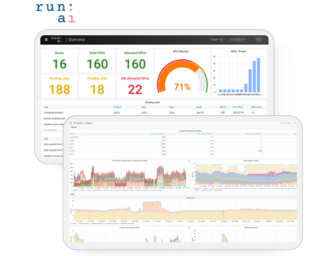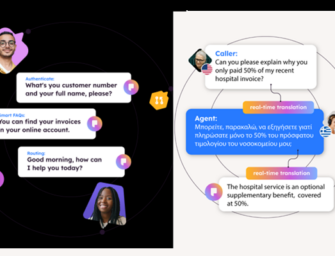Voice Industry Professionals See Services as Best Voice App Monetization Option, Confidence in Product-Based Businesses Fall
Sixty-two percent of voice app developers reported in January 2020 that building custom voice apps for businesses provides a clear path to monetization for the industry. That figure is up from just 49% in July 2019. However, optimism around voice apps designed with monetization baked in such as for product purchases, subscriptions, or advertising fell precipitously during that same period. Whereas 49% saw voice app products as having a clear path to monetization in 2019, by early 2020 that figure had declined to 30%.

Voice industry professionals seeing no clear path to monetization rose marginally from 26% to 28% during the period as did those identifying another paths to revenue climbing from 11% to 15th. The data are presented in the recently published Voice Industry Pulse 2020 from Voicebot.ai. Results were collected from 450-650 voice industry professionals in 2019 and 2020. The report includes 40 charts and over 35 pages of analysis. An executive summary and the full report can be downloaded using the button below.
Download NowRewards, Products, and Falling Optimism
It is worth noting that between the two surveys, Amazon reconfigured its developer rewards program. This program paid out cash rewards to developers of popular Alexa skills based on criteria known only to Amazon. The stated criteria were related to at least two metrics, sessions and engagement. It was unclear whether engagement metrics were related to session time, interactions per session, both, or other criteria. The net result was that category leaders could count on checks ranging from a few dollars each month to as much as $5,000. Some developers were receiving checks for multiple voice apps in multiple categories. Game developers and ambient sleep sounds were noteworthy beneficiaries of these payouts that helped sustain several businesses.
However, developer rewards recipients received notice over the summer of 2019 that payout allocation formulas were changing and that cash rewards for the most popular Alexa skills were likely to decline. Many of these developers received a larger-than-usual payout in August and then saw sharp reductions in cash rewards thereafter. Some developers suggested this was a “thank you” from Amazon for their support of the platform and as a way to ease the transition. Amazon told Voicebot at the time that they are regularly looking at how to best distribute rewards and that the program would remain in effect even if the formulas changed. The company would not confirm whether the overall rewards budget had been modified, but industry insiders suggested the company was at the very least attempting to spread the payouts to more developers.
New Focus on ISP for Voice App Monetization
The changes also followed a consistent year-long campaign by Amazon to encourage developers to adopt native monetization for voice apps known as in-skill purchasing (ISP). Many developers of popular products did add subscription or one-time purchase options to their skills and a few (a very few) did report generating meaningful revenue from the activities. Others, particularly those with less well-established user bases, told Voicebot they were not getting much traction from their ISP efforts.
It is not surprising that the reduction in Amazon subsidies coincided with falling optimism around the revenue generation and sustainability for voice apps as stand-alone products. The rewards changes reduced monetization opportunities directly and efforts to replace that cash with in-app purchases showed mixed results and often limited success. Voicebot heard from some companies that were focused on building products at the time that they had redirected their efforts to providing voice app development services for others. Thus, the rise in the optimism around services also follows from this series of events.
To be sure, not everyone is pessimistic. Voice games studio Labworks.io closed a £500,000 funding round in March and Invoked Apps founder Nick Schwab just left his full-time job as a developer in the automotive industry to dedicate all of his efforts on his ambient sounds empire. However, these appear to be exceptions rather than the start of a trend.
Monetization Prospects for Voice Apps
The iOS App Store launched in the summer of 2008. By 2011, Apple was reporting $1 billion in App Store Revenue. Given Apple’s 30% fees for in-app purchases of one-time sales and the first-year of subscriptions, you can assume that third-parties earned more than $2 billion that year. Apple reported $3 billion in App Store revenue in 2013 which we can surmise represented about $6 billion in third-party iOS app developer revenue.
The Information reported in December that Amazon had only collected about $1.4 million in Alexa skill store revenue from in-skill purchases during 2019 to that point. That might translate into over $3 million in Alexa skill developer revenue during the period. Four years after the launch of the Alexa skill store the takeaway is clear: mobile apps were generating billions of dollars in revenue for third-party developers, two orders of magnitude more than Alexa skill developers were earning at a comparable time after launch.
Growing pessimism about the prospects for third-party product revenue from voice apps appears to be justified based on both current and historical trends. If you go back to an earlier platform you might find a more apropos analogy. The early days of the web were plagued by the lack of meaningful revenue models. However, services for building websites became a very large business. Later, we saw the rise of subscription web apps and other revenue models that were highly successful.
Voice industry professionals have a front-row seat to how adoption is developing and where revenue models are actually working. Current sentiment suggests mobile and the prospects of app-based revenue may be the wrong analogy in how to thrive in the voice era.
Follow @bretkinsella Follow @voicebotai









